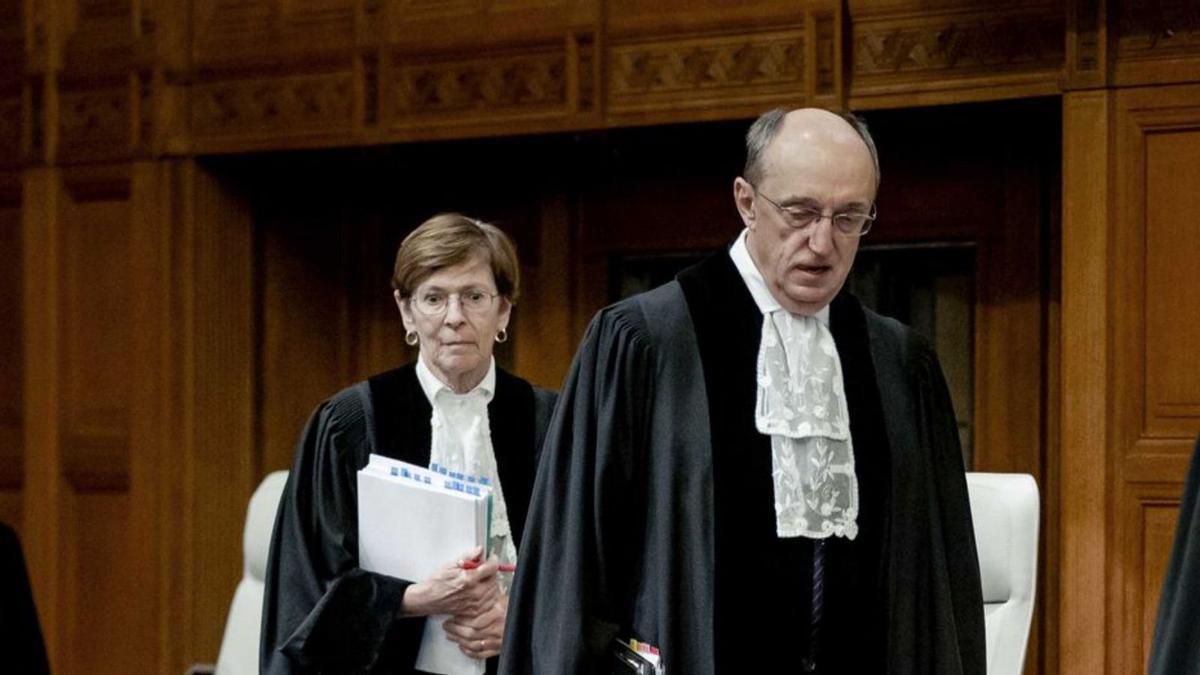Today, the President of the International Court of The Hague, US Judge Joan Donoghue, will give the official reading of the order voted to respond to the urgent interim measures requested by the South African delegation in suing Israel for a ceasefire. The crime of genocide for its actions in Gaza after October 7, 2023. The 15 justices – plus two, one for South Africa and the other for Israel – have already deliberated and voted since the hearings were held last January 11 and 12.
The measures requested by South Africa include an immediate cessation of military operations by the Israeli armed forces in Gaza, an end to the killing of Palestinians, the prevention of forced displacement, and the lifting of the blockade on access to food, water, petrol, housing and health care.
The court does not have to determine at this initial stage in the case between South Africa and Israel whether genocide is being committed under the provisions of the 1948 United Nations Convention against Genocide, to which both countries are signatories, but rather is limited to examining whether the acts described in the case The lawsuit filed by South Africa last January 11 in The Hague relates to behavior aimed at destroying the Palestinian people in whole or in part, and there is a certain danger that the aforementioned genocide is underway.
In cases of possible violation of the Genocide Convention (Gambia v. Burma, for example), the Court ordered provisional measures in Burma, which this country did not comply with, considering that these were not acts of genocide.
Commands were ignored
The day after the hearings in The Hague on January 11 and 12, Israeli Prime Minister Benjamin Netanyahu surprised everyone when he announced on Israeli television on January 13: “No one will stop us, not even The Hague, not the axis of evil.” [Iran]And nothing else.” Although its orders are binding under the Court’s statute, experience suggests that they can be ignored by states that must apply them.
The case of the Occupied Palestinian Territories, specifically the West Bank, is often cited when the court issued a recommendation to stop construction of the wall planned by the Israeli government of General Ariel Sharon in 2004. The court studied the case, and declared that the built wall and the part under construction were illegal. He ordered it to be dismantled. The resolution issued in July 2004 stated that “Israel is obligated to end its violations of international law by halting the construction of the wall built in the occupied Palestinian territories, including the part surrounding East Jerusalem.” He ordered Israel to return land, other property and real estate to “all Palestinians who suffered any form of material damage as a result of the construction of the wall.”
Then-Justice Minister Yosef Lapid responded that Israel would not adhere to the recommendations because the International Court of Justice “is composed of European judges who do not sympathize with Israel.” But are court orders binding or not? The reference to the wall in 2004 was a so-called “advisory opinion” of the Court and was not binding. On the other hand, what the court will announce today is binding in principle. The other thing is that with Netanyahu coming forward on January 13, Israel will not comply with the order if it is to stop military action in Gaza.
The problem is that Israel is de facto rewriting international conventions on war, by believing that it is not an occupying power (which the UN already enshrines) and that it has the right to self-defense (which the Geneva Laws deny to occupying forces). powers). Moreover, with regard to the protection of Palestinian civilians, women and children, Israel claims that the Hamas organization, which rules Gaza, is so “integrated” into the population (schools, mosques, food centres) that the only thing the IDF can do is warn with loudspeakers or send out leaflets. For villagers to evacuate the area that will be attacked. But the truth is that they are also attacked in the new places they move to.
23 thousand Palestinian dead
The use of 2,000-pound (more than 900 kilogram) bombs, as in Khan Yunis, for example, since the beginning of the aftermath of the attacks on October 7, 2023, leads to the destruction of entire cities and infrastructure. When South Africa filed its genocide claim, the death toll reached 23,000 Palestinians, more than half of whom were children. On January 11 and 12, when the hearings were held in The Hague, the death toll rose to 24,000. The latest numbers announced this Thursday are more than 25,900 dead and more than 64,110 wounded.
Israel's failure to respect the final order to cease its actions will also mean more difficulties for those who, like the Biden administration, continue to support Netanyahu's government, than for the Israelis – relatives of the hostages and released hostages – who are interrogating them. in the streets.

“Freelance social media evangelist. Organizer. Certified student. Music maven.”



